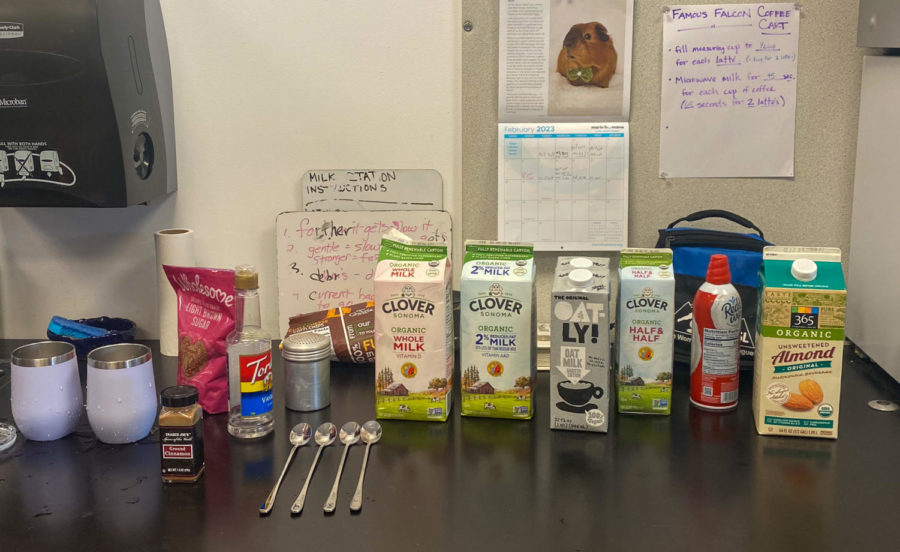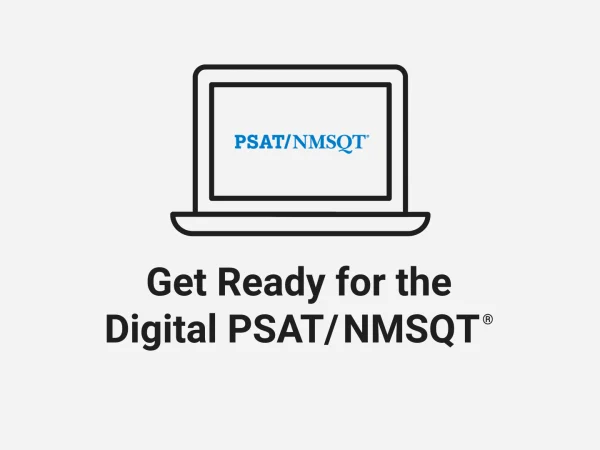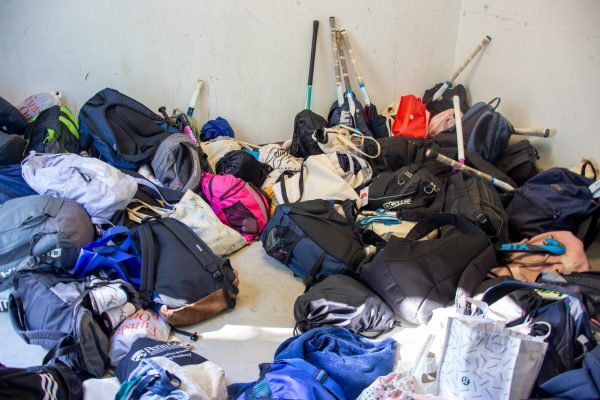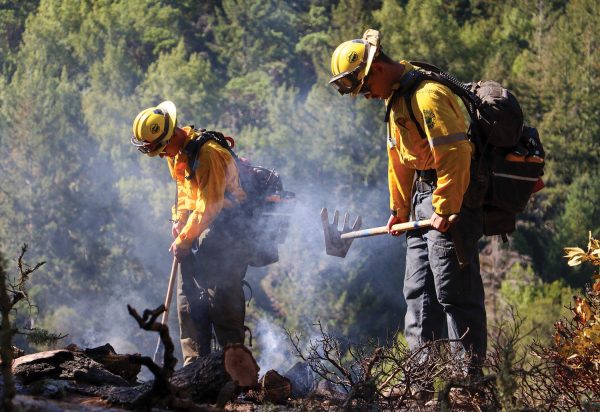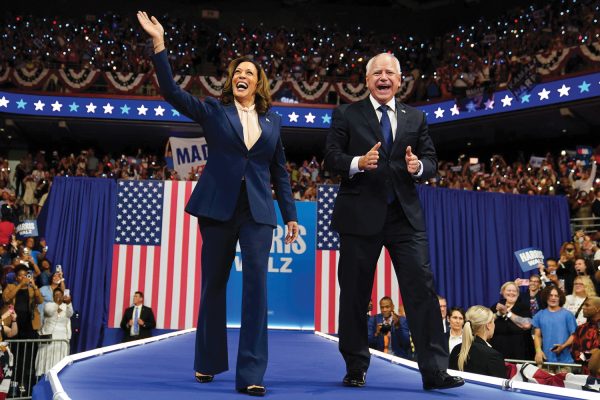The Bridge program’s coffee cart serves up tasty drinks to staff
Behind the scenes of The Bridge coffee cart’s delicious drinks is its milk stand, full of various milks and flavorings.
Have you ever noticed students delivering morning beverages to teachers during class and wondered how to sign up for the coffee delivery service? Short answer: only teachers may use this unique service. Students in the Bridge Program run a coffee stand out of room 303 every first period, providing free drinks to teachers and an opportunity to donate to charity.
The Bridge program is Archie William’s modified education initiative. The general education curriculum inspires the classes, made simpler to provide bigger pictures for students to grasp. To provide an experience based activity for advanced students, Bridge teacher Alison Leist hand-selected students to participate in working at the coffee cart.
The school administration initially granted four thousand dollars to the coffee cart, and mid-way through the year, they granted an addition of two thousand more. Complete with various flavors of syrup, espresso, and drip coffees, the students assemble, deliver, and serve their drinks every first period. Working the cart provides a workplace-like experience. As baristas and delivery workers, Bridge students gain the skills of measuring and crafting drinks, as well as giving them skills for communicating with customers and the community.
To order drinks, teachers fill out a Google form with the drink of their choice. Select groups of staff members receive the forms each day to keep the order load manageable. Leist curated this group in the beginning of the year by observing which teachers showed the most interest in receiving coffee.
To reduce waste, the stand invested in reusable lavender coffee cups that they send to their frequent customers. Staff on their current customer list typically receive at least one drink a week. Leist finds oat milk lattes to be their most popular product.
Archie Williams is not the first school to have special needs students run a coffee stand, seeing other schools around the country do it inspired Leist to start it. Last school year, she hand-selected students who she thought would be ready for the challenge. Next year, she hopes to conduct mock interviews for students interested in joining the barista team, providing further skills for navigating the job market.
“[Working at the coffee cart] helps build job skills, communication skills, and so much more,” Leist said.
Paraeducator Mia Laurence began ordering coffee from the “Famous Falcon Coffee Cart” when it first opened. Her go-to order is an oat milk latte, a treat compared to her typical black coffee.
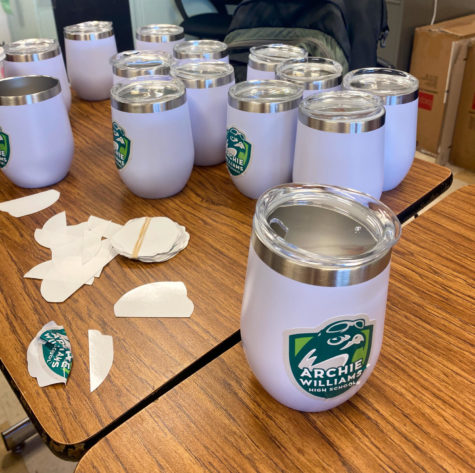
“It is extra special to see the kids in a different role when they deliver the coffee. They seem so happy and proud. It’s a great skill for them to learn—making coffee and practicing customer service. The kids get to walk around the school and interact with the staff they otherwise would not get to see,” Laurence said.
Spanish Teacher Stefanie Stranczek regularly orders from the coffee cart, her go-to being a black drip coffee. Stranczek loves interacting with Bridge students and teachers she would not usually see. She feels this appreciation is mutual, noting that the kids seem excited to interact with other students and teachers they don’t typically encounter in their day-to-day routine.
“I observe the students, talking amongst themselves, [coordinating and organizing] their morning moves for coffee delivery. I can feel their pride and energy when they put on their aprons and begin their delivery rounds,” Stranczek said.
The Bridge program not only has students and teachers helping out, but also a therapy dog, Macie. The six-year-old goldendoodle is the perfect companion for those waiting for their coffee to play with.
“The students all love Macie. She is such a positive influence on the mood,” Leist said.
Though the coffee is free, the program wanted to use its service to help a bigger cause, so students voted on organizations to ask customers to donate to with their orders. Senior Maya Lynn advocated for the class to support the nonprofit charity, the Spahr Center.
The Spahr Center provides funding for LGBTQ+ communities and those suffering from HIV in Marin County. With the funding, they manage a variety of community events, including hiking and drag shows. Spahr also offers LGBTQ+ cultural awareness and health equity training to all types of organizations, such as education and youth services, healthcare and social services, and government agencies.
“I myself am a part of the LGBTQ+ community and I thought that it would be a very good place to donate to because they do so many good things for the community,” Maya Lynn said.
Maya has been working at the coffee stand since the beginning of the school year.
“[My favorite thing to do] is to just stay on my feet and deliver the coffees to the teachers and let them know about [the Spahr center],” Maya Lynn said.
The coffee cart not only provides unique opportunities for teachers to get a free morning boost and students to get workplace experience, but it also provides funding for an important cause.
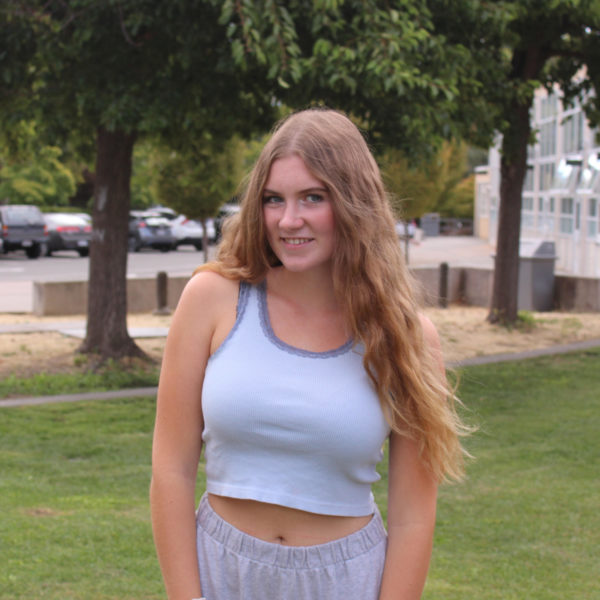
Corina is a senior, in her third year of journalism. You can often find her at a concert and spending time with friends. She loves Mexican food and listening...



